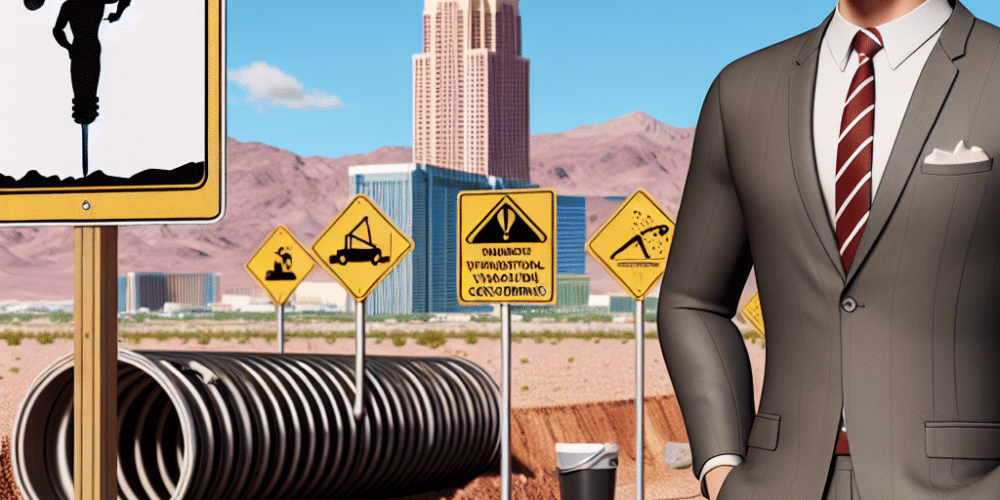Nevada environmental regulators have accused Elon Musk’s Boring Company of committing 800 violations connected to their Las Vegas tunneling project. Over a period of two years, this controversial undertaking has been under scrutiny, with the Nevada Division of Environmental Protection (NDEP) issuing a cease-and-desist order against the company. The order outlines numerous infractions, including drilling activities conducted without necessary permits, discharging untreated water into the streets and storm drains, and the improper handling of construction debris during transportation.
The Las Vegas Loop, an ambitious underground transportation system designed to shuttle passengers in Tesla vehicles beneath the city, is at the center of these allegations. Currently, the Loop covers less than a mile under the Las Vegas Convention Center, with plans for a vast expansion to encompass 68 miles of tunnels and more than 100 stops throughout the region.
These recent regulatory actions revive past concerns about the Boring Company’s operations. In 2022, the company reached a settlement with the NDEP after unauthorized groundwater discharge was discovered. Although the agreement at the time allowed for potential daily fines exceeding $3 million, the regulators opted for a reduced penalty of $242,800. They believed this amount would sufficiently deter future violations despite the company’s extensive history of infringements.
The Boring Company now faces the possibility of construction halts should they continue flouting regulations. The firm is reportedly planning to contest the cease-and-desist notice, and state officials have indicated that enforcement of the fine will be postponed until the dispute is resolved. The warning from regulators is clear: persistent non-compliance could lead to the complete cessation of construction activities.
Environmental and safety concerns surrounding the Boring Company’s practices have been mounting. Reports have emerged of workers suffering chemical burns from substances encountered during tunneling operations. Moreover, the company’s safety record came under scrutiny when Nevada’s occupational safety agency fined them over $112,000 last year for unsafe working conditions. In a separate incident, construction on a tunnel segment leading to Harry Reid International Airport was temporarily halted after a worker was injured in an accident involving crushing equipment.
Elon Musk, known for his outspoken views on regulatory measures, has often criticized environmental regulations, suggesting that it is sometimes more pragmatic to incur fines after the fact rather than waiting for approvals. Critics argue that this approach contributes to the recurring regulatory breaches associated with his companies.
Industry analysts remain skeptical about the efficacy of the imposed fine in altering the Boring Company’s operational practices. Ben Leffel, a public policy expert at the University of Nevada, Las Vegas, noted that penalties need to be substantial relative to a company’s profits to drive significant behavioral change. Despite the escalating number of allegations, the Boring Company maintains its goal of expanding the Las Vegas Loop into a high-speed underground network aimed at alleviating surface traffic congestion.
Opponents of the project argue that the environmental and safety risks posed by the tunneling activities outweigh the potential benefits. They call for more stringent oversight and accountability measures to ensure compliance with regulatory standards. Yet, supporters of the Loop project highlight its potential to revolutionize urban transportation, offering a faster and more efficient alternative to existing traffic systems.
The debate over the Boring Company’s Las Vegas Loop project is emblematic of broader tensions in the industry, where innovation and regulatory compliance often collide. As the project continues to evolve, it remains a focal point for discussions around sustainable development, environmental stewardship, and the role of corporate responsibility in pioneering new technologies within urban landscapes.
While the Boring Company faces challenges on multiple fronts, the ultimate trajectory of the Las Vegas Loop will likely hinge on the outcomes of ongoing negotiations with regulators, the company’s ability to address environmental and safety concerns, and the broader public’s reception of this ambitious transportation initiative.

David Harrison stands tall in gambling journalism, marrying his firsthand casino experiences with a deep understanding of betting psychology. His articles transform complex gambling jargon into engaging tales of strategy and chance, making the world of betting accessible and enjoyable. David’s knack for narrative extends beyond print, making him a sought-after speaker on gambling trends and future bets. In the realm of gambling, David is both a scholar and a storyteller, captivating readers and listeners alike.
















